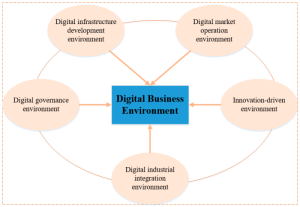Dive into the world of Corporate energy procurement where businesses strive to save costs and go green. From strategic decisions to innovative practices, this topic is a fascinating journey waiting to unfold.
As we explore the different industries and their energy needs, you’ll discover how companies are shaping their future through energy procurement strategies.
Corporate Energy Procurement

Corporate energy procurement refers to the process of purchasing energy, such as electricity or natural gas, by businesses to meet their operational needs. It is an essential aspect of sustainable business practices as it allows companies to manage their energy consumption effectively, reduce costs, and minimize their environmental impact.
Industries heavily reliant on corporate energy procurement
- Manufacturing: Industries that involve heavy machinery and production processes require significant amounts of energy to operate efficiently.
- Technology: Data centers and IT facilities consume large amounts of electricity to power servers and cooling systems.
- Retail: Stores, shopping centers, and supermarkets rely on energy for lighting, heating, and air conditioning.
Benefits of strategic energy procurement
- Cost savings: By strategically procuring energy, businesses can negotiate better rates, optimize consumption, and reduce overall energy costs.
- Environmental impact: Sustainable energy procurement can help companies reduce their carbon footprint and contribute to environmental conservation efforts.
- Market competitiveness: Companies that prioritize energy efficiency and sustainability are often perceived more favorably by customers and investors.
Key considerations in choosing energy procurement strategies
- Energy sources: Assess the availability and reliability of different energy sources, such as renewable energy options like solar or wind power.
- Regulatory compliance: Ensure that energy procurement strategies comply with local laws and regulations governing energy consumption and sustainability.
- Supplier reliability: Evaluate the track record and reputation of energy suppliers to ensure consistent and high-quality service delivery.
Chemicals and Allied Products
The chemicals and allied products industry plays a crucial role in various sectors, including manufacturing, agriculture, healthcare, and more. The production processes in this industry are energy-intensive and require a significant amount of electricity and heat to operate efficiently.
Energy Consumption Patterns
The chemicals and allied products industry is known for its high energy consumption due to the complex nature of production processes. From raw material processing to chemical reactions and product purification, every step requires energy in the form of electricity and heat. The industry also relies on various types of equipment and machinery that consume energy throughout the manufacturing process.
Impact of Corporate Energy Procurement
Corporate energy procurement can have a significant impact on the production processes in the chemicals industry. By adopting sustainable energy procurement practices, companies can reduce their carbon footprint, lower energy costs, and improve overall operational efficiency. This can be achieved through the use of renewable energy sources, energy-efficient technologies, and strategic energy management practices.
Innovative Energy Procurement Practices
Leading companies in the chemicals industry have been adopting innovative energy procurement practices to enhance sustainability and reduce environmental impact. For example, some companies have invested in on-site renewable energy generation, such as solar panels or wind turbines, to offset their electricity consumption. Others have implemented energy storage systems to optimize energy usage and reduce peak demand charges.
Challenges Faced by Large vs. Small Companies
Large chemical corporations and smaller companies in the sector face different energy procurement challenges. While large corporations may have the resources to invest in renewable energy projects and implement advanced energy management systems, smaller companies often struggle with high energy costs and limited access to capital. Additionally, regulatory compliance, market volatility, and supply chain disruptions can pose challenges for both large and small companies in the chemicals industry.
Construction and Maintenance
The construction and maintenance industry have significant energy requirements to power equipment, machinery, and facilities. As these sectors continue to grow, the need for sustainable energy procurement becomes crucial to reduce the environmental impact and carbon footprint of construction projects.
Role of Sustainable Energy Procurement
Incorporating renewable energy procurement strategies can help construction companies minimize their reliance on fossil fuels and decrease greenhouse gas emissions. By investing in solar panels, wind turbines, or biomass energy sources, construction projects can significantly lower their carbon footprint and contribute to a greener, more sustainable future.
Examples of Companies Implementing Renewable Energy Strategies
Skanska
One of the largest construction companies globally, Skanska has committed to using 100% renewable energy by 2020 and has invested in solar and wind power projects.
Mortenson
This construction firm has implemented energy-efficient practices and invested in wind and solar energy to power their operations, reducing their overall carbon emissions.
Cost Implications of Energy Procurement
While there may be initial costs associated with implementing renewable energy procurement strategies, construction and maintenance businesses can benefit from long-term cost savings. By reducing energy consumption and utilizing cleaner energy sources, companies can lower their electricity bills and operational expenses over time, making it a sustainable and cost-effective investment.
Consumer Goods and Services
In the consumer goods and services sector, energy procurement plays a crucial role in ensuring smooth operations, cost-effectiveness, and sustainability.
Significance of Energy Procurement in Consumer Goods
Consumer goods companies heavily rely on energy to power their production processes, distribution networks, and retail operations. Efficient energy procurement helps these companies manage costs, maintain competitiveness, and reduce environmental impact.
Impact on Product Pricing and Consumer Behavior
- Energy procurement decisions directly affect the production costs of consumer goods, which can impact product pricing in the market.
- Consumers are increasingly conscious of sustainability and environmental practices, so companies that prioritize renewable energy sources in their procurement strategies may attract environmentally-conscious consumers.
- Higher energy costs due to inefficient procurement practices could lead to increased prices for consumers, potentially impacting purchasing decisions.
Challenges Faced by Consumer Goods Companies
- Balancing the need for energy-intensive production processes with sustainability goals poses a significant challenge for consumer goods companies.
- Fluctuating energy prices and regulatory changes can add complexity to energy procurement strategies in this sector.
- Ensuring a reliable energy supply while minimizing environmental impact requires careful planning and investment in renewable energy sources.
Case Studies of Successful Energy Procurement Strategies
Several consumer goods companies have successfully implemented innovative energy procurement strategies to enhance sustainability and reduce costs:
-
Company A
invested in on-site solar panels to power their manufacturing facilities, reducing reliance on grid electricity and lowering operational costs.
-
Company B
partnered with renewable energy providers to source a significant portion of their energy from wind and solar farms, aligning with consumer preferences for eco-friendly products.
-
Company C
implemented energy efficiency measures across their supply chain, including optimized transportation routes and energy-saving technologies in production, leading to reduced energy consumption and emissions.
Business Energy

Business energy refers to the energy sources utilized by companies to power their operations, machinery, and facilities. It plays a crucial role in ensuring the smooth functioning of various business activities and is a significant component of overall operational costs.
Sources of Business Energy
- Electricity: One of the most common energy sources used by businesses, powering lighting, computers, and other electronic devices.
- Natural Gas: Widely used for heating, cooling, and cooking in commercial buildings.
- Petroleum Products: Used in transportation, manufacturing processes, and as a backup energy source.
- Renewable Energy: Increasingly popular options such as solar, wind, and hydroelectric power, offering sustainable and environmentally friendly alternatives.
Importance of Energy Efficiency and Renewable Sources
Energy efficiency is crucial for businesses to reduce costs, minimize environmental impact, and enhance sustainability. By optimizing energy consumption and investing in renewable sources, companies can lower their carbon footprint and contribute to a greener future.
Utilizing renewable energy sources not only benefits the environment but also helps businesses secure a stable and affordable long-term energy supply.
Tips for Optimizing Energy Procurement
- Conduct an energy audit to identify areas of improvement and potential savings.
- Invest in energy-efficient technologies and equipment to reduce consumption and costs.
- Consider renewable energy options like solar panels or wind turbines to diversify your energy sources.
- Negotiate with energy suppliers for better rates and explore opportunities for energy procurement contracts.
Business Environment
In the realm of corporate energy procurement, the business environment plays a crucial role in shaping the decisions made by companies. From regulatory factors to industry standards, businesses must navigate a complex landscape to ensure efficient and sustainable energy procurement practices.
Regulatory Factors Impacting Energy Procurement
Regulatory factors have a significant impact on the energy procurement strategies adopted by businesses. Government policies, environmental regulations, and market mechanisms all influence how companies source and consume energy. For example, renewable energy targets set by governments may incentivize businesses to invest in clean energy sources such as solar or wind power. On the other hand, carbon pricing mechanisms can affect the cost of energy production and consumption, prompting businesses to explore more energy-efficient solutions.
Corporate Energy Procurement and the Business Ecosystem
The relationship between corporate energy procurement and the overall business ecosystem is intricate and interconnected. Energy procurement decisions can have far-reaching implications on a company’s operations, supply chains, and bottom line. By aligning energy procurement practices with broader business goals and strategies, companies can enhance their sustainability efforts, improve operational efficiency, and strengthen their competitive position in the market.
Aligning Energy Procurement with Environmental Goals
Businesses are increasingly recognizing the importance of aligning their energy procurement practices with environmental goals and industry standards. By investing in renewable energy sources, implementing energy-efficient technologies, and adopting sustainable practices, companies can reduce their carbon footprint, minimize environmental impact, and contribute to a greener future. Embracing clean energy solutions not only benefits the environment but also enhances a company’s reputation, attracts environmentally conscious customers, and drives innovation in the industry.
Closure
In conclusion, Corporate energy procurement is not just about saving money but also about making a positive impact on the environment. By understanding the challenges and opportunities in this field, businesses can pave the way for a more sustainable future.
FAQ Corner
What industries benefit the most from corporate energy procurement?
Industries like manufacturing, construction, and consumer goods heavily rely on energy procurement to meet their operational needs efficiently.
How can businesses balance cost savings and environmental impact through energy procurement?
By choosing renewable energy sources, optimizing energy efficiency, and implementing strategic procurement practices, companies can achieve both financial benefits and sustainability goals.
What are the key considerations when selecting energy procurement strategies for a corporation?
Factors like energy costs, environmental regulations, reliability of energy sources, and long-term sustainability goals play a crucial role in determining the right energy procurement approach for a business.




